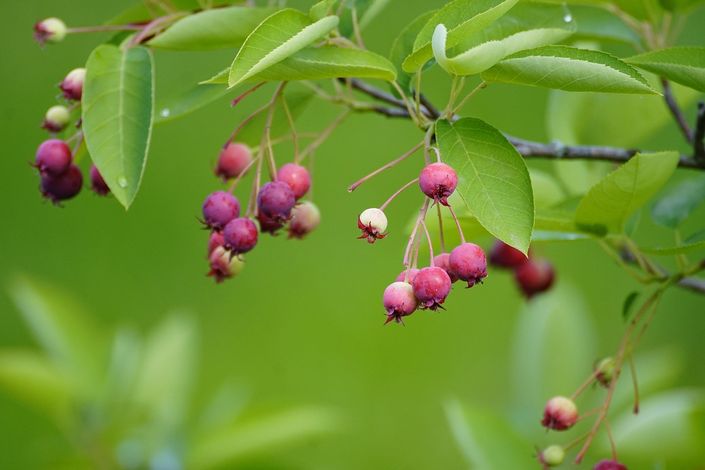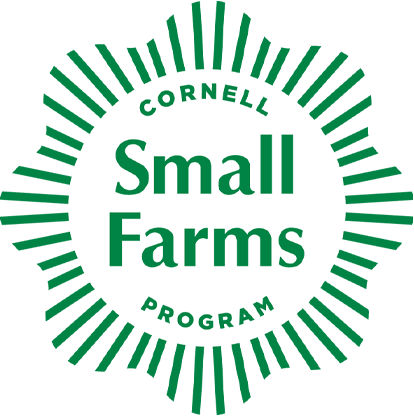
BF 123: Growing Uncommon Fruit
Expand Your Knowledge of and Connection to Underutilized Fruit
Enroll in Course
Expand Your Knowledge of and Connection to Underutilized Fruit
Do you want to learn more about lesser-known fruit? This course will help you determine whether incorporating uncommon fruit into your operation is the right decision for you. We’ll walk you through all aspects of this decision, from possible fruits and appropriate site selection to marketing and profit potential, plus the advantages to including woody perennials into your farm plan. Many of these fruits can be successful in a forest farming setting, so are attractive to people with an interest in agroforestry. Expand your understanding of these promising crops and how they could improve your farm’s ecosystem while possibly also supporting your bottom line.
This course is designed as a companion to the BF 122: Berry Production course, but you do NOT have to take BF 122 before taking BF 123.
Target Audience
Beginning to Intermediate: Farmers with a few years of commercial horticulture experience will get the most from this course but all are welcome to participate. This course will also be beneficial to very small-scale orchardists/gardeners, permaculture growers, and those with an interest in agroforestry.
Learning Objectives
Upon completion of this course, you will know:
- How to identify and consider what success looks like when incorporating uncommon fruit into your operation
- Factors for primary site selection and analysis considerations
- Soil and climatic requirements of an array of uncommon fruit
- Potential benefits and costs associated with uncommon fruit in commercial settings
- What factors to consider for successful marketing, analyzing costs, and generating income associated with these crops
- How to connect with grower-groups and farm
resource agencies to support your operation
Webinars
The bulk of the course happens on your own time, with discussions,
readings, and assignments in Teachable, our virtual classroom. To add to
the experience, webinars will be woven into the online interface of the
course to allow you to meet on a weekly basis to learn from presenters
and ask questions in real time. If you miss one, they are always
recorded and posted for later viewing.
Webinar Schedule
In 2026, this course will be offered live for 6 weeks on Tuesdays from 6:30 – 8:00 PM (Eastern) from February 24 – March 31. While we encourage live attendance, so you have the opportunity to engage with presenters and ask questions, all webinars are recorded and posted in the online classroom to watch anytime. Once enrolled in this course, you will retain access to all materials indefinitely, and can return to participate in the live webinars in future offerings of the course if you wish. Join us!
Your Instructor

Anya Stansell is the Western New York Small Fruits Extension Specialist. She works with berry growers and researchers in New York State, working with questions about berry variety selection and cultural management. Before she began working with Cornell Cooperative Extension, Anya studied strawberry growing systems for her Masters degree at Cornell University.
Heather Kase is the Eastern New York Small Fruit Specialist. She collaborates with growers on production, IPM and more for strawberries, blueberries, brambles, and other unique fruits. She earned her master’s in plant health management from Ohio State University and her bachelor’s degree in environmental biology from SUNY ESF.

Student Testimonials
"This course was a valuable resource. It was a good balance of enough information/materials to go more in depth in areas of particular interest, without being overwhelming or "forcing" everyone to spend equal time on all topics regardless of individual interest. The focus was on learning and getting as much value out of the course as possible."
"This course has taught me about many nutritional fruits that can be grown in my area.I took the course to learn more about growing elderberries, but found out that there are many other fruits that I can grow also. My goal now is to get started with a couple plants of all that were discussed and then slowly add more. Thank you for the opportunity to learn more about what I can grow on my land and how to grow them, great class."
Course Curriculum
Frequently Asked Questions
Online Course Tiered Pricing
The Cornell Small Farms Program offers a tiered pricing model to provide greater access to our online courses. To determine your course enrollment cost, please consult the chart below, and honestly identify your current financial situation.
We realize that not everyone is able to afford the price of our courses, so we also offer a small number of scholarships each year to New York State residents. To apply, please read scholarship requirements and complete the application here.
